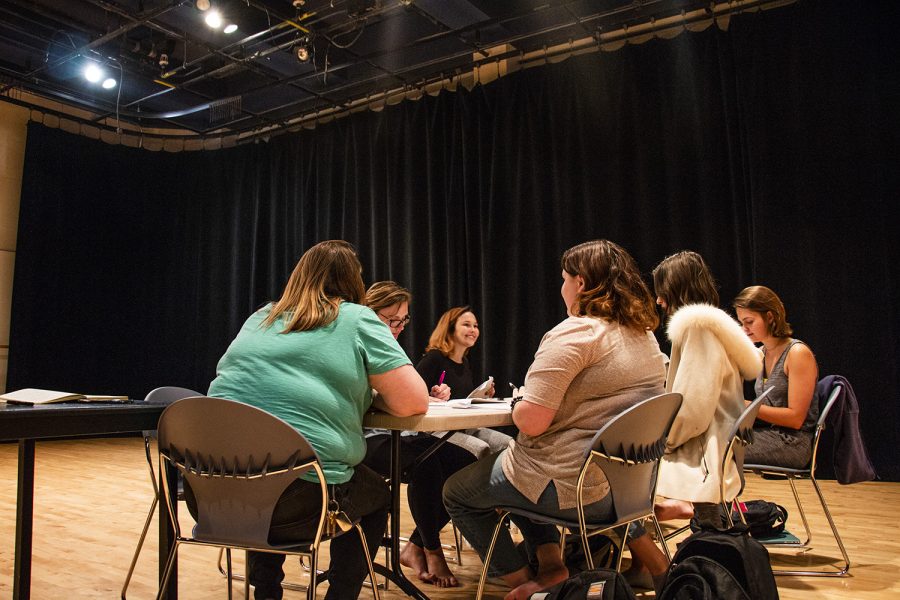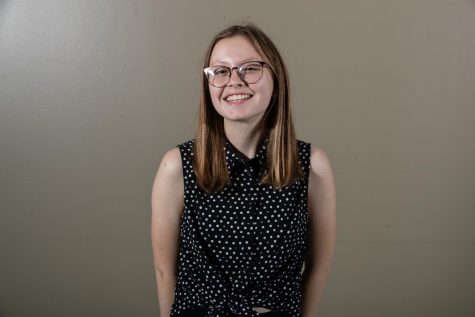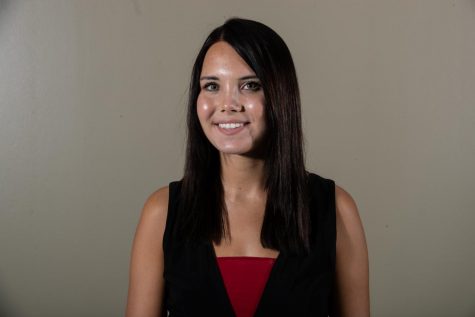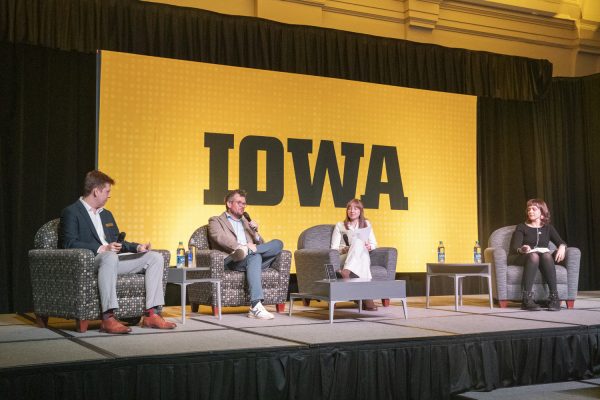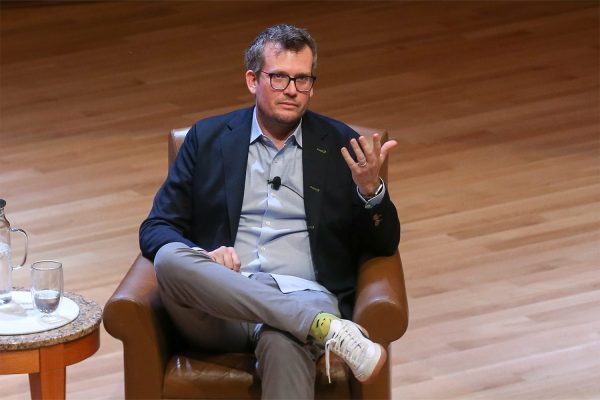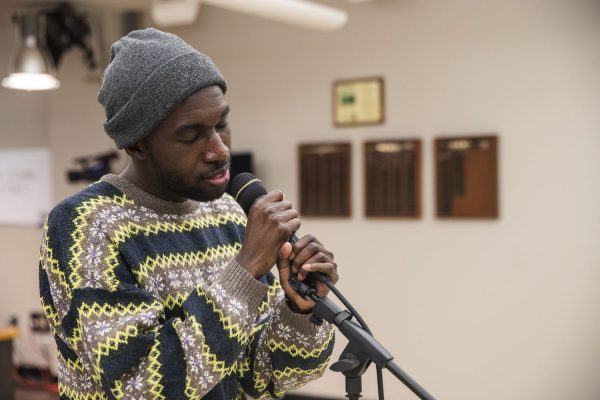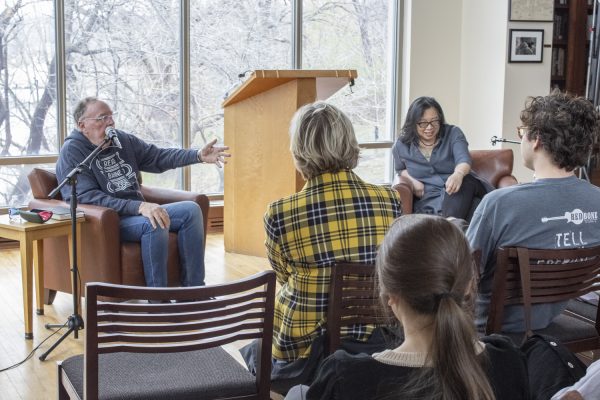Play written by a UI student molded from #MeToo, Gulabi Gang
Battle Creek, with a plot revolving around women standing up to male abuse, will be read on Friday in the Theater Building.
Group members of Battle Creek rehearse lines in the Theater Building on Tuesday, September 11, 2018. The plot of the play revolves around four women standing up to men who mistreated them. (Katina Zentz/The Daily Iowan)
September 12, 2018
In 2006, the Gulabi Women of India were fed up with the lack of police support for abused women. Instead of running to their broken law enforcement, a small group of women formed their own system of forcing abusers into the sunlight: dragging them into the street and beating them aggressively with a giant stick. Thus, the Gulabi Gang was born.
Playwright Emmy Lane Palmersheim was inspired by the Gulabi Gang. Her play Battle Creek will hold its first public reading at 8 p.m. Friday in 172 Theater Building.
“I had tried to write a few different plays with similar themes,” said Palmersheim, a University of Iowa undergraduate student. “I started writing this around the #metoo movement. Battle Creek is a journey about the self and revolves around the question of what makes you a good feminist? It’s a big question of duty.”
The play invokes human-like commonalities such as respect, loyalty, and trust for one another. The title of the script derives from Battle Creek, Michigan, where abuse and crime are at an all-time high present day. Palmersheim’s writing models a conversation about a culture that is cultivated by straight white men.
“The play starts out with good and evil,” Palmersheim said. “There are no lesser evils and eye for an eye; you don’t get to be absolved of your crime the rest of your life.”
However, her play still has yet to leap to the stage, which is why a reading is imperative for a script to develop into its full form. The process of outlining and writing a piece takes determination and approval from the “higher-ups” of drama in the Theater Department.
Pages are turned and reviewed by the cast, eager to begin reading once the faint yellow highlight of their character’s name is seen.
“I think it’s so interesting seeing different interpretations of the play,” said Ferin Bergen, who plays Gwyneth, one of the vigilante group members. “It’s also great seeing all the different kinds of work that goes into it, like the writing, directing, acting, and set-making.”
Charles Green, Palmersheim’s mentor in the Iowa Playwrights Workshop, said he believes that “the overall structure of the play is revealed in a way that simply reading the play silently to yourself never could.”
Through the simple task of reading, the playwright can grasp a sense of what steps on the stage and what exits stage left, how relationships among characters feels, and who needs to speak louder or perhaps softer.
“Here, the playwrights have to consider what they really want the play to be doing and how these notes speak to the ways in which the play is achieving these goals or falling short,” Green said. “At the end of the day, all edits and changes have to come from this place — serving the play itself to make it the best version of the piece it is trying to be.”



